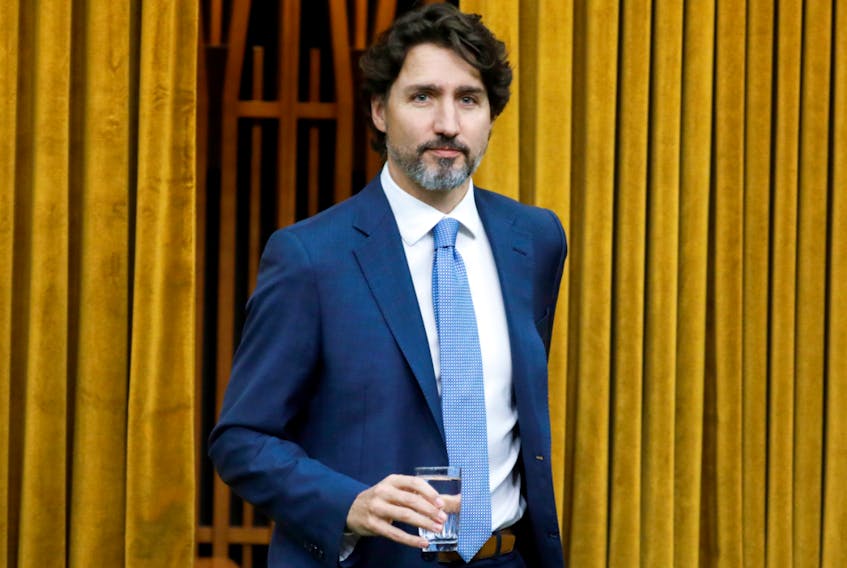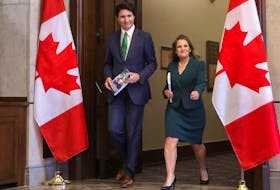Prime Minister Justin Trudeau rejected Conservative calls for a return to normal House of Commons sittings on June 11. Canadians should be outraged.
Far be it for me to suggest that Trudeau is channelling the German political philosopher Carl Schmitt; in fact, I doubt he’s ever heard of him. But he seems to be governing in the style Schmitt, who became notorious as a supporter of the destruction of Weimar Germany, characterized as “the state of exception.”
Schmitt set out his views in his 1932 book The Concept of the Political. In essence, for Schmitt, it was a form of emergency rule which allowed for an unchecked executive to dispense with parliamentary accountability and oversight.
The sovereign dictator, according to Schmitt, has the power, to set aside the positive legal and constitutional order and to create a novel positive legal and constitutional order, together with the new social normality that justifies it. The ruler claims to exercise the constituent power of the people and to transcend the rule of law in the name of the public good.
I've been thinking about the doctrine of the state of exception as western governments have assumed extraordinary powers over citizens during this pandemic – including in Canada. The consequences of entering a state of exception may unroll slowly and go unnoticed for awhile. The COVID-19 pandemic is, after all, an emergency.
But through the extension of the executive’s powers into the legislative sphere through the issuance of decrees and measures, “the state of exception appears as a threshold of indeterminacy between democracy and absolutism,” writes the Italian philosopher Giorgio Agamben in his 2005 work State of Exception.
No, Justin Trudeau is not a dictator in the common-sense definition of the term, but he has been playing fast and loose with the conventions of our Westminster system of government, virtually bypassing and emasculating the official opposition and in effect governing by decree.
In a recent paper published by the Macdonald-Laurier Institute, a non-partisan public policy think tank in Ottawa, entitled Covid’s Collateral Contagion: Why Faking Parliament is no Way to Govern in a Crisis, Christian Leuprecht of the Department of Political Science at the Royal Military College examines the federal government’s efforts to stifle Parliament.
The extraordinary measures employed by the minority Liberal government, he asserts, demonstrate “unprecedented disregard for parliamentary convention.”
Leuprecht argues that, although the government consulted the House of Commons in its attempt to legitimize a virtual substitute, “its decision to truncate Parliament is arbitrary, defies convention, and prioritizes governance over representation.”
At a time of unprecedented executive action leading to liberal federal spending and restrictions on Canadians’ freedoms, the government has managed to avoid the regular scrutiny that serves to hold decision-makers accountable.
Yet by May 2020 direct federal spending announcements related to the pandemic had amounted to $152.8 billion while the federal deficit is projected to exceed $250 billion this year.
“Canada’s government has not only capitalized on the virus to limit democratic debate on measures it has implemented, but also effectively put the very ability of Parliament to carry out its functions up for debate wholesale,” he contends.
With only 40 sitting days between July 2019 and June 2020, never in Canadian political history has a Parliament sat less. This is, he points out, the fewest in 80 years outside an election year. The federal government, he concludes, has become a notable outlier amongst other Westminster parliamentary systems, which continue to have functioning Parliaments despite the pandemic.
National Post columnist Rex Murphy, in his June 11 article, “A Tidal Wave of Overlapping Crises,” put it well:
“The House of Commons is an empty gilded shell on a deserted hill in the heart of a city that is supposed to be the heart of Canada’s democracy. Prime Minister Justin Trudeau’s driveway is now the seat of the Canadian government.”
His daily performance, coming out of his cottage, reminds me of a cuckoo bird emerging out of a clock. At least he doesn’t shout at us from a balcony, as Mussolini did in Rome.
Here’s Rex again: “We have the most impotent Parliament in Canadian history during one of the greatest crises in Canadian history. Terribly, it has signed onto its own impotence and irrelevance; it has conceded that it does not count when it should matter most. This is a national shame.” Indeed.
Henry Srebrnik is a professor of political science at the University of Prince Edward Island.









